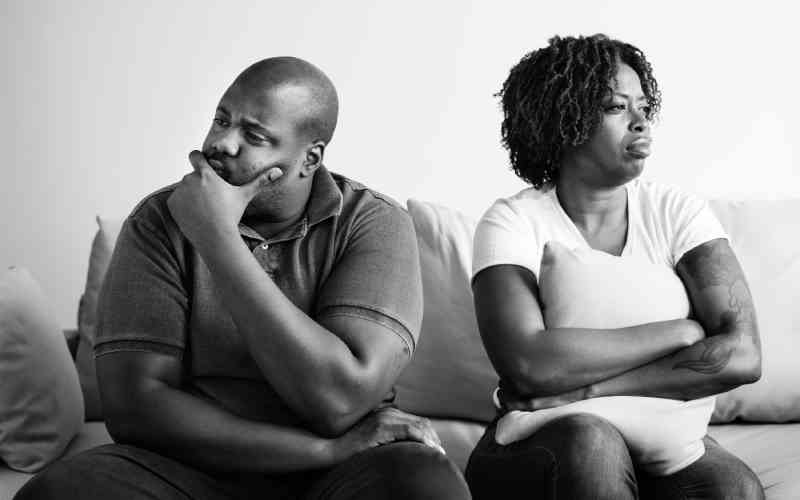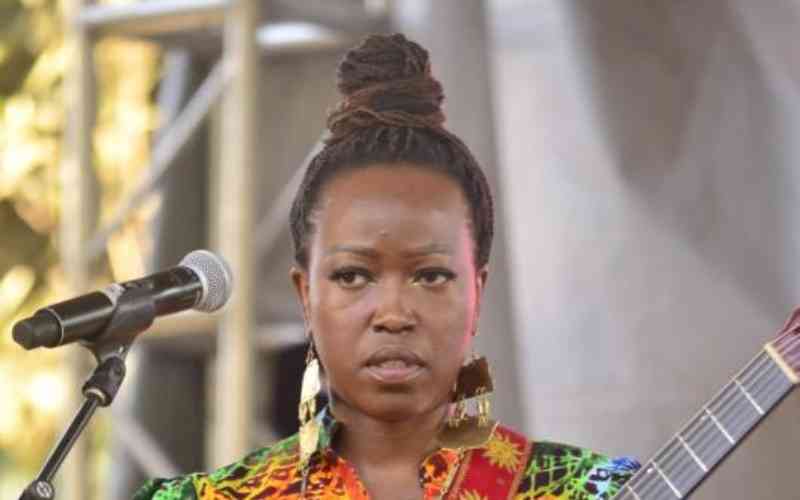
Marriage is supposed to be a beautiful thing. After all, the Good Book declares that 'he who finds a wife, finds a good thing.' But marital unions are not always rosy. Apparently, there are clans in Kenya whose women are a no-no for men seeking a happily-ever after marriage.
Women from some clans among the Kikuyu for instance, are renowned 'headaches,' while other clans are famous for 'fast and furious' separations, even before the totos crawl. To convince a love-struck man of the dangers, an aunt in the know would draw his attention to the fact that even the girl's grandmother 'ran away' 500 times during her marriage.
But do such traditional beliefs about tribal clans with 'evil eye' and others filled with 'unmarriable' women still hold water in the 21st century? Does the 'mahewa generation' do a background check on their potential spouses to find out whether they come from the right clans?
Something else: even with the advancement in education and exposure, do the reasons why some clans were no-go zones still hold water over 50 years after independence?
Well, you will be shocked to learn that nothing much has changed.
No-go zone clans
Marriages among Kikuyu clans had few restrictions, but men were warned against fetching wives from the Ethaga (also called the Ambura) clan, one of the nine Agikuyu clans.The Ethaga were renowned rainmakers, but their women were famed for witchcraft, which though meant to protect the community from marauders, was nevertheless treated with caution in Central Kenya.
"Ethaga are not necessarily evil, but when comparing them with other Kikuyu clans, few would marry or get married to an Ethaga for fear they could use their special powers to harm," says Mzee Peter Kibue from Kiambu County.
Besides no-go zone clans, the Kikuyu were even keener on individual families and those with a history of curses and a trail of misfortunes were given a wide berth. Josephat Chege, an elder from Murang'a, says such families would be avoided over events dating back decades.Kikuyu families are known to have supported the British colonialists or served as 'homeguards' were also treated with caution, especially if a man or woman from such a family was interested in someone from a family of freedom fighters.
Good wives
A woman's background and upbringing count for more than hailing from the Ethaga clan in view of the Kikuyu demarcating choice of spouses by regions.
Chege says the cruelty of British colonialists in Nyeri hardened their women into no-nonsense spouses, with their domestic military exploits reinforcing the stereotype of that Nyeri women are hard nuts to crack. Parts of Kiambu, where the Kikuyu and Masaai were in constant fights over cattle, also produced 'hardcore' women, just why Kiambu means 'the place of screams.' "We can't put a blanket judgement on the Kiambu and Nyeri women," says Chege, who adds, "But some brought up with the hardened personality will not hesitate to pick fights with their husbands and it is for this reason that some men would be skeptical about marrying them."
While the Kiambu woman is known to have a penchant for material possessions, those from Kabete are particularly feared for, among other things, harbouring murderous intentions, another stereotype reinforced by media reports and that not-so-small matter of Kabete having the highest number of widows per square kilometre in Central Kenya.
Kibue admits that women from Murang'a, Nyandarua and outside Mt Kenya region generally make for good wives "as they are not so combative," and this narrative of praise has buttressed their upbringing and expectations.
 The Standard Group Plc is a multi-media organization with investments in media platforms spanning newspaper print
operations, television, radio broadcasting, digital and online services. The Standard Group is recognized as a
leading multi-media house in Kenya with a key influence in matters of national and international interest.
The Standard Group Plc is a multi-media organization with investments in media platforms spanning newspaper print
operations, television, radio broadcasting, digital and online services. The Standard Group is recognized as a
leading multi-media house in Kenya with a key influence in matters of national and international interest.











